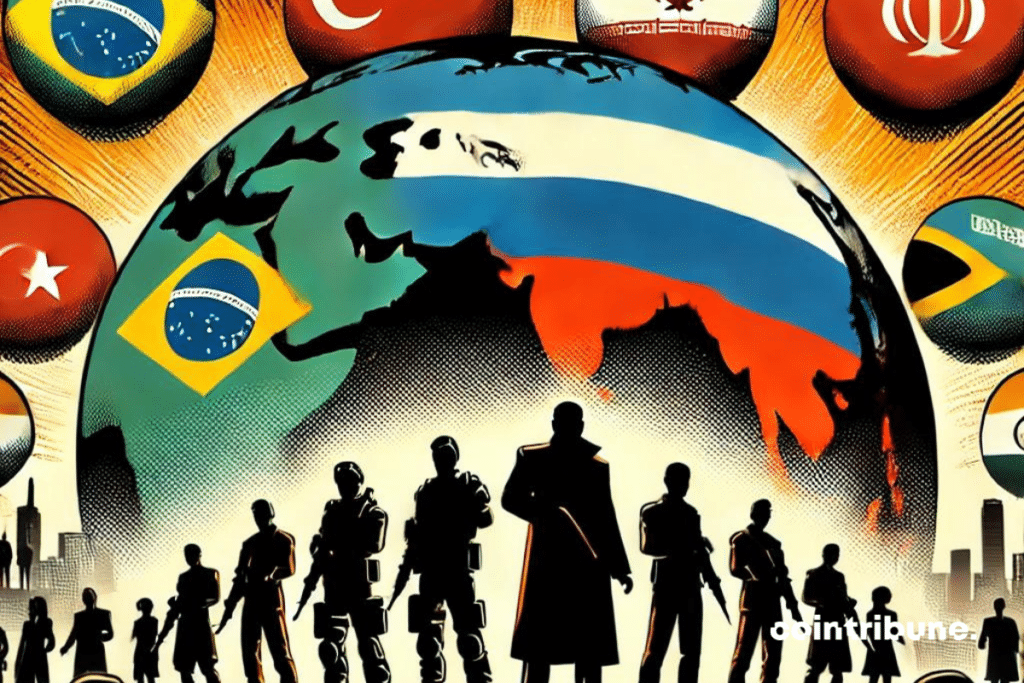World: Turkey Faces An Unexpected Obstacle To Joining BRICS
The world is undergoing a geopolitical reshaping. While tensions among major powers shape international relations, economic alliances are evolving at an unprecedented speed. At the heart of this new world order, the BRICS, a bloc of major emerging economies, is establishing itself as a key player capable of reshaping global balances. This group, once limited to five members, has recently opened up to new candidates, adding giants like Iran or Saudi Arabia to its ranks. It is in this context that Turkey, led by its president Recep Tayyip Erdoğan, is seeking to join this influential alliance. A strategic decision that comes as prospects for accession to the European Union fade, pushing Ankara to diversify its economic and geopolitical partnerships. Yet this candidacy is not unanimous: the BRICS, still in a phase of consolidation after its latest enlargement, might delay before making new decisions. This, despite the growing interest of around twenty nations to join the group.

BRICS faces the Turkish candidacy: Consolidation before expansion
During a recent press conference following the 79th session of the United Nations General Assembly, Sergey Lavrov, Russia’s Minister of Foreign Affairs, stated that the BRICS is not considering new memberships at the moment. This statement comes even as Turkey, led by President Recep Tayyip Erdoğan, has formally submitted its application to join this group of emerging economies.
Lavrov specified that, although more than twenty countries have expressed an interest in joining the BRICS, including about ten with official applications like Turkey’s, current members deem it necessary to “consolidate” the bloc before considering a new expansion. “We were five, we are now ten,” he recalled, referring to the recent membership of Egypt, Iran, Ethiopia, Saudi Arabia, and the United Arab Emirates. According to Lavrov, this adaptation phase is essential to ensure a harmonious integration of new members into the organization.
This cautious position highlights the importance for the BRICS to maintain a balance between its historical members and new entrants in a rapidly changing global context. Adding five new nations to the original group has significantly expanded the geopolitical and economic scope of the BRICS, which now represents 45% of the world’s population and nearly 28% of global GDP. However, this rapid expansion requires internal adjustment before accepting new members, such as Turkey, which aims to diversify its partnerships after recurring blockages in its accession process to the European Union.
Diplomatic and geopolitical challenges
Turkey’s candidacy to the BRICS is part of a strategy of international repositioning, while its relations with the European Union stagnate. Turkish Foreign Minister Hakan Fidan has clearly stated that if Turkey had joined the European Union, it would probably not have considered joining the BRICS. For Ankara, this bloc represents an opportunity to diversify its economic and strategic alliances in a global context where geopolitical lines are rapidly being redrawn.
Yet this ambition is far from unanimous. Even though Turkey’s NATO membership is not, according to Lavrov, a direct obstacle to its membership, Turkey’s support for Ukraine, especially through the supply of drones, raises questions among BRICS members, who favor a coherent approach to major international issues, particularly those related to the Russia-Ukraine conflict.
Tensions surrounding Turkey’s foreign policy, particularly its ambivalent stance towards Russia and Ukraine, add a layer of complexity to its candidacy. Ankara, although not participating in Western sanctions against Moscow, has maintained close ties with Kiev, which could complicate its integration into a bloc where Russia plays a central role. Despite these obstacles, Turkey hopes that its economic weight and strategic position between Europe and Asia will work in its favor, particularly to strengthen ties with other emerging members of the BRICS, in hopes of finding alternatives to Western alliances.
While Turkey’s application to the BRICS reflects a clear desire to move away from the shadow of the West, it raises questions about the coherence of its foreign policy and its ability to navigate between sometimes contradictory alliances. The BRICS summit in Kazan this coming October could offer some clarification, but for now, Turkey’s integration remains uncertain.
Maximize your Cointribune experience with our "Read to Earn" program! For every article you read, earn points and access exclusive rewards. Sign up now and start earning benefits.
Diplômé de Sciences Po Toulouse et titulaire d'une certification consultant blockchain délivrée par Alyra, j'ai rejoint l'aventure Cointribune en 2019. Convaincu du potentiel de la blockchain pour transformer de nombreux secteurs de l'économie, j'ai pris l'engagement de sensibiliser et d'informer le grand public sur cet écosystème en constante évolution. Mon objectif est de permettre à chacun de mieux comprendre la blockchain et de saisir les opportunités qu'elle offre. Je m'efforce chaque jour de fournir une analyse objective de l'actualité, de décrypter les tendances du marché, de relayer les dernières innovations technologiques et de mettre en perspective les enjeux économiques et sociétaux de cette révolution en marche.
The views, thoughts, and opinions expressed in this article belong solely to the author, and should not be taken as investment advice. Do your own research before taking any investment decisions.